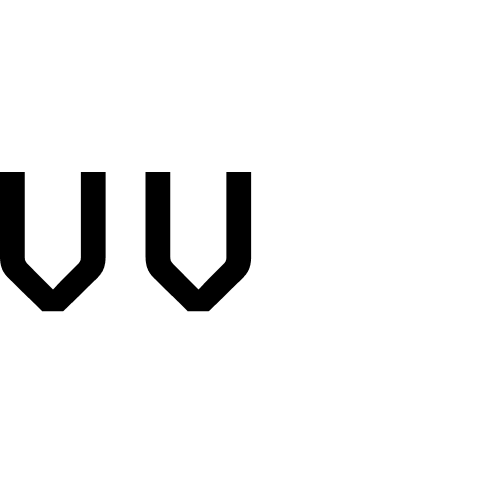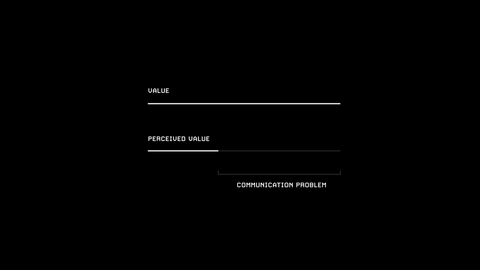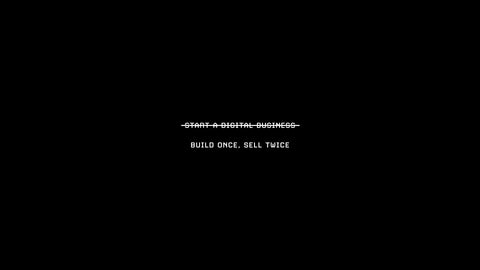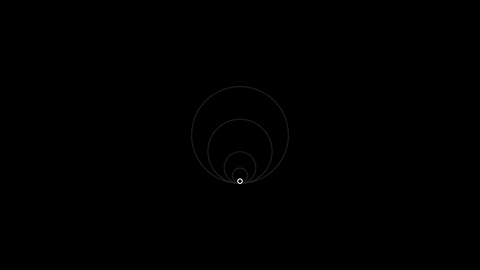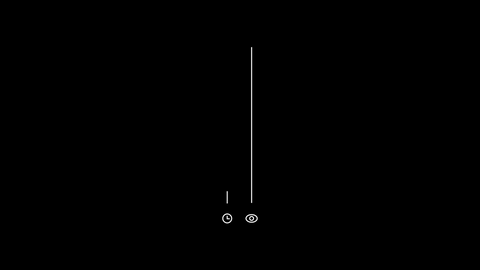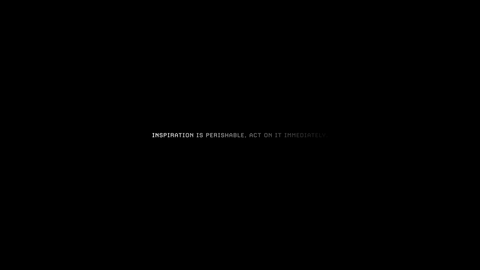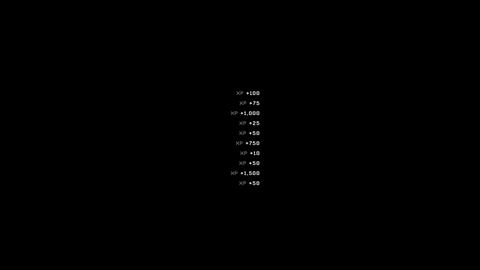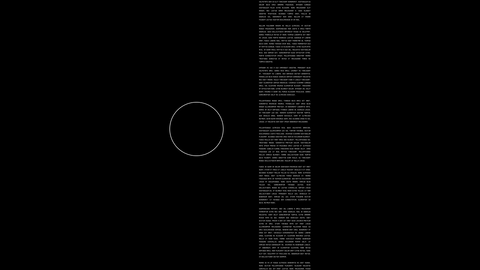The formula for freedom goes something like this:
→ Build marketable skills
→ Communicate your ideas clearly
→ Stop trading time for money
→ Earn more than you spend
→ Don't depend on a single source of income
→ Align your work with your curiosity
→ Work when and where you want
→ Develop a network of trusted relationships
None of which happen overnight.
There are many unintuitive things about working on the internet:
The first being, the narrower your focus, the bigger your opportunity.

The great irony in identifying your focus is (in my experience) it's only achieved by widening it first.
For me it went something like this:
→ Study graphic design (2007-2010)
→ Do 3 unpaid graphic design internships (2010)
→ Get an agency job (2011)
→ Quit agency job (2012)
→ Get 7 more agency jobs (2012-2017)
→ Start my own advertising agency (2017)
→ Pivot agency business (2017)
→ Pivot agency business again (2018)
→ Build Visualize Value (2018 - today)
The last bullet is a combination of everything I learned and experienced in the 8 bullets before, packaged into "a brand" — something that takes a long time to take hold in the minds of everyone that isn't you.
I talk about this idea in more detail in this video:
There are many awful, cringe inducing definitions of "personal branding" — none of which I'm endorsing here.
Doing business on the internet is about convincing people you don't know that you have something they need or want. Think of a brand as the bridge between the two.
In any market, the value of everyone’s time starts at zero.
Always remember:
Nobody cares what you can do, everybody cares what you can do for them.
For a hard-hitting perspective on this, read this article.
Everyone acquires knowledge via experience.
The skills we pick up working a job, following our interests on the side, or studying for specifically.
At this stage of our careers, we're still responding to demand.
Investing our time to build skills that the market values until we're confident enough to sell them independently.
We all live on the left side of this diagram to begin with:

It takes many years (and many reps) to acquire knowledge specific enough to be productized.
In the end, the more unique your experience, the more valuable your product.
Understand the above and you can reframe what you'd once think of as wasted time as a necessary investment in becoming unique.
For context, I stumbled upon the concept of productization long after I'd spent many years accruing a random selection of skills and experiences - and deployed them against many different types of problems.
If you're just getting started, you can do what I did (get paid to learn on the job), or you can circumvent the market by building skills off the job (get paid and learn on the side).
I am not an economist, but I am going to borrow an economic concept to explain this next idea.
All markets function relative to supply and demand.
Supply: How much of something there is.
Demand: How many people want it.
The more constrained the supply, the higher the price.
An oversimplification, but bear with me.
Your skills and perspective lie on the supply side of this equation.
Those in the market for your skills and perspective make up the demand.
The takeaway from this analogy:
We undervalue what we assume is in high-supply (our proximity to our own skills and perspective often leads to an inaccurate evaluation of just how unique they are).
The internet has drastically affected the viability of being rewarded for uniqueness. In a local market, ultra-specificity almost always reduces market size, on the internet, the opposite is true.
What a time to be alive
The internet is an incredible tool that has widened the scope of our professional pursuits by an enormous amount.
It makes it possible for me to type this once, and send it to thousands of people, with zero additional effort or cost.
"Take a simple idea and take it seriously." — Charlie Munger
It's not all sunshine and rainbows though, my friends.
The internet extends your reach to people who couldn't care less about what you have to say, some of whom will take great delight in telling you.
It's also not very useful to assume your friends and family care as much as you do, either.
Here's a short explanation:
Lots of people getting started reach out to explain that they're having a hard time getting their existing network to respond to their work.
This isn’t about quality of work, it’s purely about reframing something it seems a lot of people struggle with:
Just because people care about you, doesn’t mean they’ll care about your art, your business, your ideas, or your experiences in trying to build them.
Just because you grew up on the same street as somebody or share the same last name, doesn’t mean you’ll be interested in the same things.
Enter: the internet. It doesn’t matter who you’re born from or next to any more. Do the work and let the work find the people.
I shared Visualize Value work with my personal network every day for close to a year, and almost everyone I have ever met in person couldn’t care less. I posted a few to my personal Instagram... crickets. Shown a few people in person... blank stares.
A couple of years later, over 500,000 people subscribe to it in some way shape or form (thank you). Almost none of which I know personally, and most of which live in countries I have never set foot in.
TLDR; expecting the people that care about you to care as much about your obscure obsession as you do is lunacy.
Video for visual learners:
Rule #1: You are the most valuable asset in your portfolio. Your reputation is a proxy for your future earnings.
Reputation is a simple construct, built on two ideas:
Ability: What you can do.
Reliability: What you actually do.

Differentiation is how we create an edge in any market, and it's even more true on the internet. In an environment of infinite noise and distraction, specificity wins.
Specific proof of work is the unlock: be it more clients, more conversations, or more customers for a product that works without you.
Reputation built on proof of work is the closest thing to professional invincibility that exists.
In a digital-first business, your "storefront" is decentralized across the platforms you use to build and communicate with your network. Every tweet, every email, every video, every podcast is an investment vehicle that generates equity after you take it to market.
If it never gets to market, no equity for you. Your equity in the market represents the collective value assigned to you by people consuming your message.
On occasion, it makes sense to collect the dividends you've earned. This is not an exact science, but you will get a feel for how it works in time.
80/20 is a good rule of thumb:
Add value 80% of the time. (Build equity)
Ask for value 20% of the time. (Collect dividends)
Monopolies
I wrote a tweet a while ago (partly in jest):
"The year is 2030, the only two professions are amazon employee and artist."
While this is an obvious and egregious exaggeration, my intention was to get people thinking about the general trend:
Monopolies with network effect will continue to dominate.
Unless we're planning on building a monopolistic platform (or working for one), the play is to differentiate.
"Technology democratizes consumption but consolidates production. The best in person in the world at anything, gets to do it for everyone." — Naval Ravikant
This is a more elegant explanation of my joke above.
So, where does that leave us?
I promised myself there would be no mention of crypto in this email sequence, but I can't resist.
There are many intelligent arguments for one crypto assets success over another, but without going there — crypto accelerates the trend towards transparent, fast paced markets where nodes compete on merit.
Which brings me to my final point:
Why would the network interface with your node over another?
Work is a search for the answer.

Image: From nations to nodes.
APIs
Digital commerce is an ever-intensifying competition.
Those that find an advantage press on it hard and scale to serve huge audiences — those that don't, fight for nonspecific scraps.
Such is the world of software and media.
Since this trend isn't reversing any time soon, I'd like to offer a frame for thinking about how to maintain autonomy, while capturing the upside on offer.
It's this:
Make yourself an API
Your talent, perspective and unique output as a plug-and-play accelerant for another person, business or idea.
Let's get into some definitions:
API
Application Programming Interface: a software intermediary that allows two applications to talk to each other.
Essentially, a piece of software that delivers a specific outcome with the least amount of friction possible.
API Documentation exists to explain what an API is capable of — in the same way publishing proof of work explains what an individual is capable of.
As physical location becomes less intertwined with skill deployment, communicating what we're capable of remotely becomes the ceiling on our opportunity.
Just as an API that can't explain what it does won't get integrated into many applications, a person that can't explain what they do will miss the majority of opportunity.
“The world rewards the people who are best at communicating ideas, not the people with the best ideas.” — David Perell

What's the difference between an employee and an entrepreneur?
To oversimplify:
Proximity to failure.
I am not trying to make the case that one is superior, that's a personal decision.
But — here's an observation I've made in watching a few thousand people attempt to make the transition:
You can be independent to the extent you can tolerate being told you're wrong.
You can do bad work in a non-independent environment and be insulated from failure (and even told your work was good when it didn't work).
The last part is the most misleading, the skills you cultivate to excel in a non-independent environment are different than those required to excel independently.
And there's nothing wrong with that — it's the difference between contributing to building a large machine, or designing your own.
My favorite encapsulation of this realization when you start to operate independently:
No one cares what you can do, everyone cares what you can do for them.

For example:
I can help you visualize your ideas, and productize your knowledge.
It takes a long time to clarify these outcomes, adding slightly more leverage as the market guides you.
One of the most interesting illusions about this process:
Having access to the tool does not equal having access to the result.
Can anyone with an internet connection leverage these principles?
Yes.
Is it getting harder every day?
Yes. (for that exact reason)
This is why you see thousands of Twitter accounts running the playbook to teach people how to build Twitter accounts, and so on and so forth.
Commodities, not brands.
If your goal is to build an independent internet business based on your talent alone, competing to be the most unique version of yourself is the underlying challenge.
That said, rewinding to a higher point in the series, this challenge is two-fold — building the ability to generate a result and finding a unique way to communicate it.
Another under-appreciated truth — working in a commercial environment that forces you to build a specific skill puts you at a massive advantage, you start from a position of iteration vs. invention.Many of my peers would make the recommendation to write/publish into the void until something clicks, but that's difficult to do without an understanding of a problem you can solve or a result you can produce.
Nothing wrong with joining another network to figure that out, then gradually applying leverage to create a network of your own.
As I mentioned in every section above, if your objective is to build something unique around your mix of skills and experience, your journey will be unique - by definition.
Visualize Value exists to help you find your personal points of leverage, focused on the principles and philosophies that are most helpful when using the internet to build a network and a flexible business, backed by our own experience doing exactly that.
If the above resonates and you'd like to go deeper:
Build Once, Sell Twice is a principle based curriculum that focuses on the concept of productization, if you're curious for others' experience, read the reviews at the link above.
How to Visualize Value is more tactical in nature — unpacking the communication edge that exists in presenting your ideas visually, to both increase your reach, and your resonance.
Buy together: VV Training Bundle
